Hatha Yoga has been a cornerstone of traditional yoga practices for centuries, offering a unique blend of physical postures, breathing techniques, and meditation to harmonize the body’s energy and calm the mind. By uniting the opposing forces of ha and tha, this gentle yet powerful practice awakens the body’s dormant energy, leading to a profound sense of calm and clarity. But what exactly lies at the heart of Hatha Yoga, and how can it be harnessed to transform one’s life?
Key Points
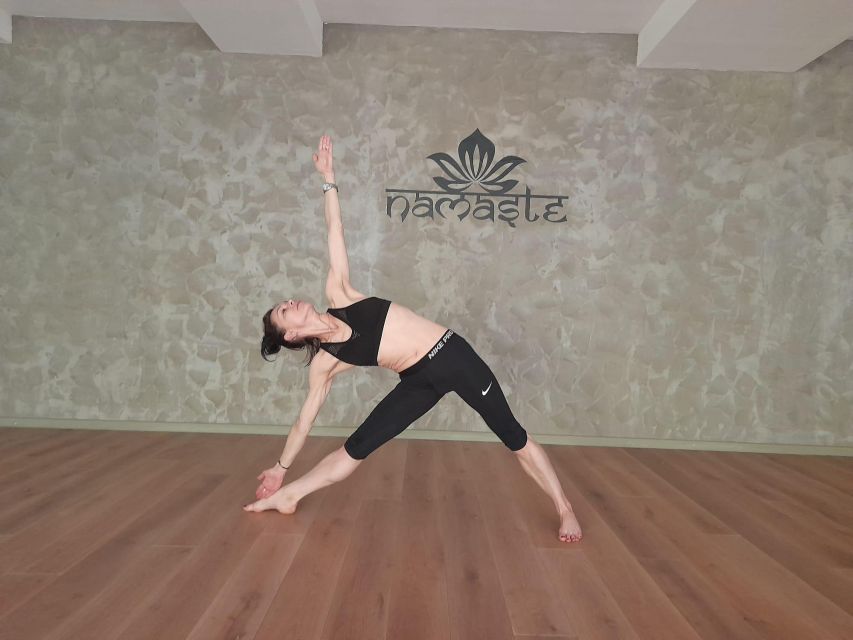
• Hatha Yoga is a holistic practice that combines physical postures, breathing techniques, and meditation to balance the body’s energy and quiet the mind.
• Regular practice can lead to increased flexibility, balance, and strength, as well as reduced stress and anxiety.
• Hatha Yoga techniques include asanas (postures), pranayama (breath control), bandha (energy locks), drishti (focused gaze), and vinyasa (flowing movement).
• To practice Hatha Yoga, start with gentle stretches, move through a series of postures, incorporate breathing exercises, and end with deep relaxation.
• Hatha Yoga is accessible to practitioners of all levels, offering a transformative journey towards physical, mental, and spiritual well-being.
What Is Hatha Yoga
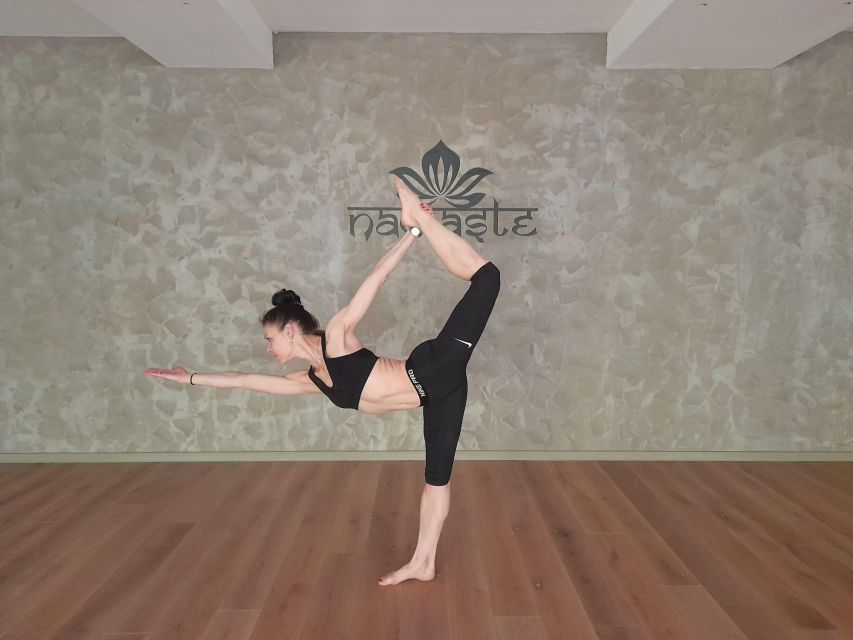
Practiced for centuries, Hatha Yoga is a traditional form of yoga that combines physical postures, breathing techniques, and meditation to balance the body’s energy and quiet the mind.
This holistic practice aims to unite the opposing forces of ha (sun) and tha (moon), symbolizing the unity of opposites.
Through gentle stretches, strengthening postures, and controlled breathing, Hatha Yoga helps to awaken the body’s dormant energy, or kundalini.
By quieting the mind and balancing the body’s energy, practitioners experience a sense of calm, clarity, and inner peace.
As a traditional and gentle form of yoga, Hatha Yoga is accessible to practitioners of all levels, offering a transformative journey towards physical, mental, and spiritual well-being.
You can also read our reviews of more tours and experiences in Issy Les Moulineaux.
Benefits of Hatha Yoga
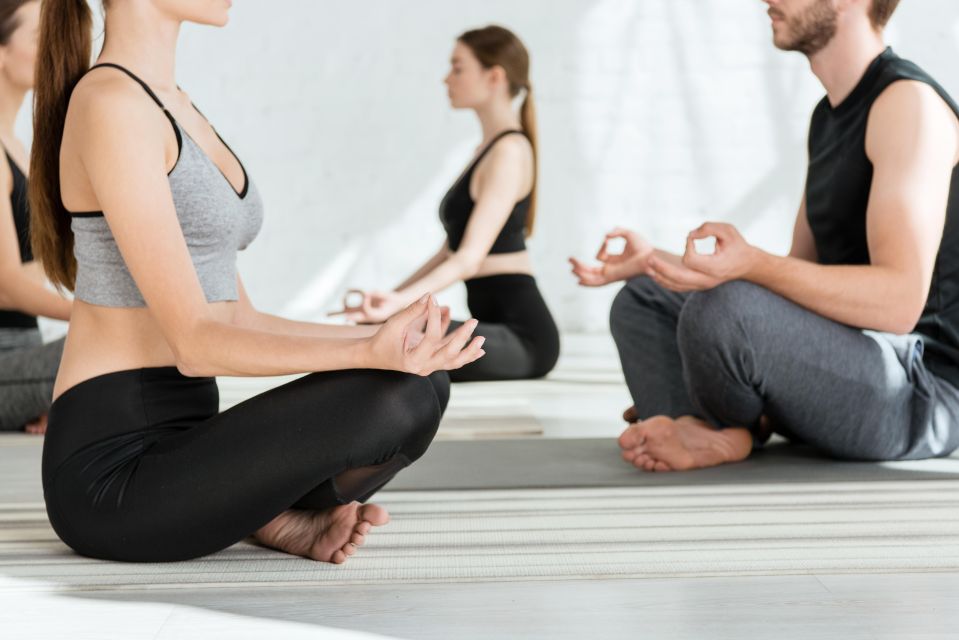
By uniting physical postures, breathing techniques, and meditation, Hatha Yoga practitioners can unlock a range of benefits that extend far beyond the yoga mat. This holistic practice has a profound impact on both physical and mental well-being.
Regular practice can lead to increased flexibility, balance, and strength, as well as reduced stress and anxiety.
Some of the key benefits of Hatha Yoga include:
Improved flexibility and balance: Increased range of motion and coordination.
Reduced stress and anxiety: Decreased cortisol levels and a sense of calm.
Enhanced mental clarity: Improved focus, concentration, and mental well-being.
Boosted immune system: Strengthened immune function and overall health.
Hatha Yoga Techniques
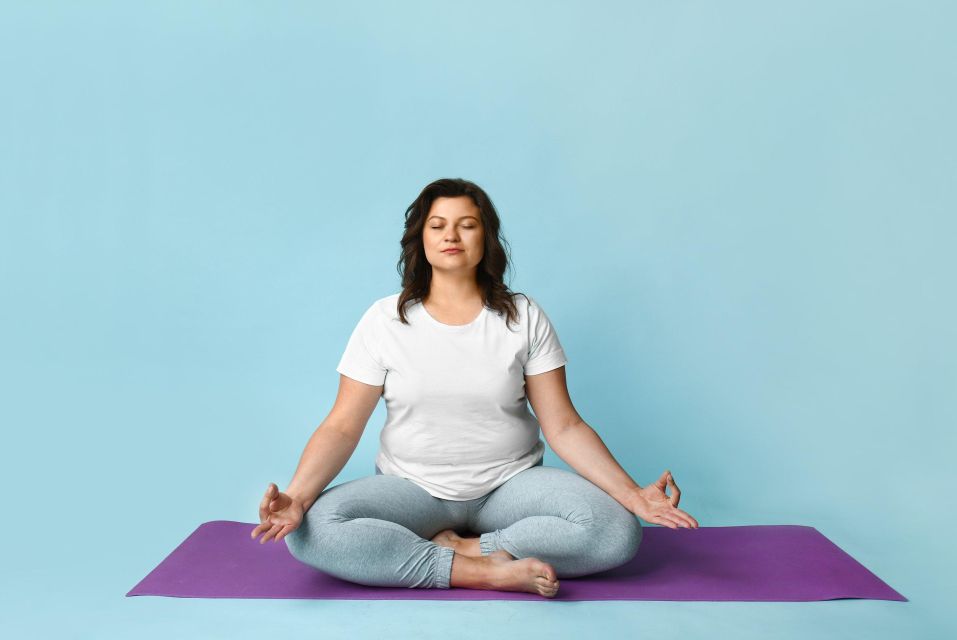
Lucie’s Hatha Yoga classes focus on six key techniques that form the foundation of this ancient practice.
These techniques include Asanas, Pranayama, Bandha, Drishti, Vinyasa, and Shatkarma.
Asanas, or postures, aim to balance the body’s energy and prepare it for meditation.
Pranayama, or breath control, helps to calm the mind and balance the body’s energy.
Bandha, or energy locks, helps to conserve and direct energy.
Drishti, or focused gaze, enhances concentration and balance.
Vinyasa, or flowing movement, connects postures and promotes flexibility.
Shatkarma, or cleansing practices, purify the body and mind.
How to Practice Hatha Yoga
She begins her Hatha Yoga practice by finding a quiet, peaceful space where she can focus on her breath and quiet her mind. She takes a few moments to set her intention, whether it’s to relax, energize, or simply be present.
-
Warm up: Start with gentle stretches to loosen up her muscles and prepare her body for the practice.
-
Sequence of postures: Move through a series of asanas, holding each one for a few breaths, and focusing on proper alignment and technique.
-
Breathing exercises: Incorporate pranayama techniques, such as alternate nostril breathing or belly breathing, to calm her mind and balance her energy.
-
Final relaxation: End her practice with a few minutes of deep relaxation, allowing her body and mind to fully release and recharge.
Hatha Yoga for Beginners
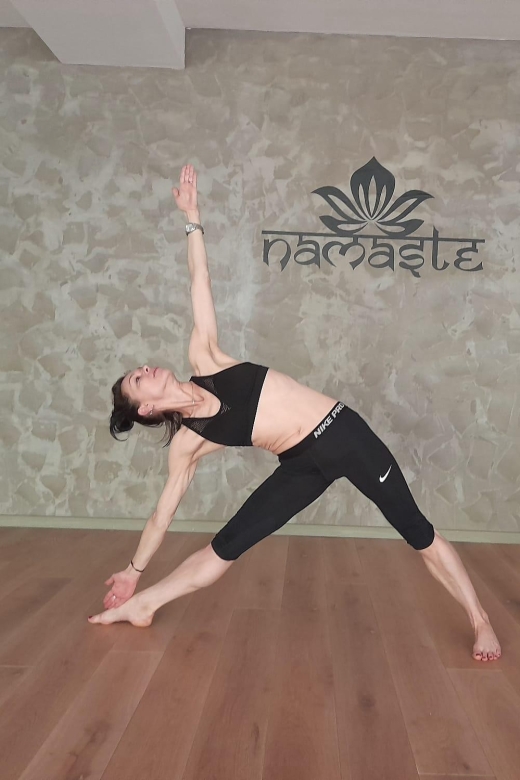
Incorporating hatha yoga into a daily routine can be intimidating for beginners, but with a little guidance, anyone can experience its numerous physical and mental benefits.
For those new to hatha yoga, it’s essential to start with simple postures and gradually increase the intensity.
Lucie’s semi-private courses, limited to four participants, provide a comfortable environment for beginners to learn and grow.
With her guidance, students can focus on perfecting their postures, breathing techniques, and relaxation methods.
By committing to regular practice, beginners can expect to see improvements in their flexibility, balance, and overall well-being.
With patience and dedication, hatha yoga can become a transformative part of one’s daily routine.
Hatha Yoga and Mindfulness
Practicing hatha yoga cultivates mindfulness by training the mind to focus on the present moment, quieting the internal chatter, and heightening self-awareness.
As individuals move through the physical postures and breathing techniques, they become more attuned to their body’s needs and limitations.
This increased self-awareness translates into daily life, allowing individuals to respond to situations more thoughtfully and make more intentional choices.
Focus on the breath: Concentrating on the breath helps quiet the mind and bring awareness to the present moment.
Body awareness: Paying attention to physical sensations and alignment in postures encourages individuals to tune in to their bodily needs.
Mindful movement: Moving slowly and deliberately through postures helps individuals cultivate a sense of awareness and control.
Pause and reflection: Taking time to pause and reflect between postures allows individuals to integrate the physical and mental benefits of the practice.
Hatha Yoga Classes Near Me
Finding a hatha yoga class that resonates with your schedule and style can be a daunting task, but with the right resources, you can discover a serene oasis in the midst of a bustling city.
Online platforms and local yoga studios offer a variety of hatha yoga classes near you.
These classes cater to different levels, from beginners to advanced practitioners.
You can filter by location, time, and instructor to find the perfect fit.
Some studios even offer free trials or semi-private classes for a more personalized experience.
With a little research, you can find a hatha yoga class that balances your mind and body, and brings calm to your busy life.
The History of Hatha Yoga
With roots dating back to ancient India, Hatha Yoga‘s rich history unfolds like a petals of a lotus flower, revealing a complex tapestry of spiritual and physical practices.
This ancient practice has evolved over centuries, influenced by various cultures and philosophers. Hatha Yoga’s development is a testament to the ingenuity and creativity of Indian sages and yogis.
15th century: Hatha Yoga is first mentioned in the Hindu text, Hatha Yoga Pradipika.
10th century: The Nath tradition, a school of Hinduism, develops Hatha Yoga as a way to balance the body’s energy.
5th century: The Upanishads, ancient Indian texts, lay the foundation for Hatha Yoga’s spiritual practices.
20th century: Hatha Yoga is popularized in the West by Indian gurus like T. Krishnamacharya and B.K.S. Iyengar.
Common questions
Can I Eat Before a Hatha Yoga Class?
She wonders if it’s okay to eat before a class, considering it’s generally recommended to avoid heavy meals beforehand to prevent discomfort. For Hatha Yoga, it’s best to eat a light meal or snack 1-2 hours prior to allow for digestion.
Are Hatha Yoga Classes Suitable for Pregnant Women?
She wonders if pregnancy-safe classes exist. Generally, prenatal yoga modifications accommodate expecting mothers, but it’s essential to consult a doctor and inform the instructor beforehand to ensure a safe and healthy experience.
Do I Need to Bring My Own Yoga Mat?
She doesn’t need to bring her own yoga mat, as the studio likely provides them. However, in this semi-private hatha yoga course, it’s best to confirm with Lucie or the reception upon arrival.
Can I Attend a Hatha Yoga Class With an Injury?
She can attend a class with an injury, but it’s essential to inform the instructor beforehand; Coach Lucie adapts postures to individual abilities and constraints, ensuring a safe and beneficial experience for participants with injuries.
Are Hatha Yoga Classes Only for Flexible People?
She wonders if yoga classes cater only to flexible people. Generally, yoga is adaptable to various fitness levels, focusing on individual progress, not comparison. In fact, yoga benefits people with limited flexibility, improving their range of motion.
Final Words
As Hatha Yoga weaves together physical postures, breathing techniques, and meditation, it awakens the body’s dormant energy, leading to a profound sense of calm and inner peace.
By embracing this traditional practice, you can expect to cultivate clarity, balance, and unity within themselves.
As a holistic approach to well-being, Hatha Yoga offers a path to self-discovery, empowering individuals to harmonize their opposing forces and unlock their full potential.
